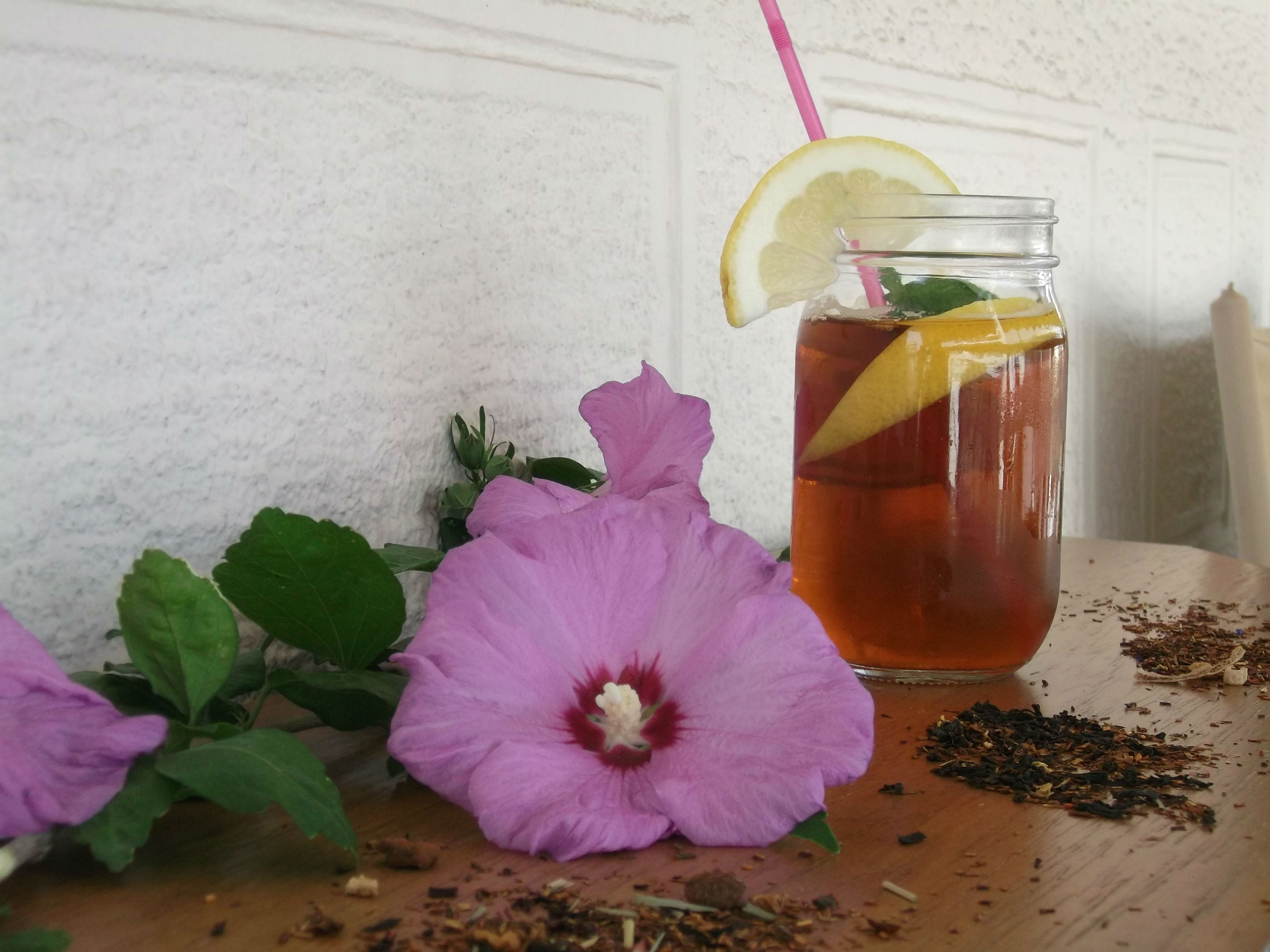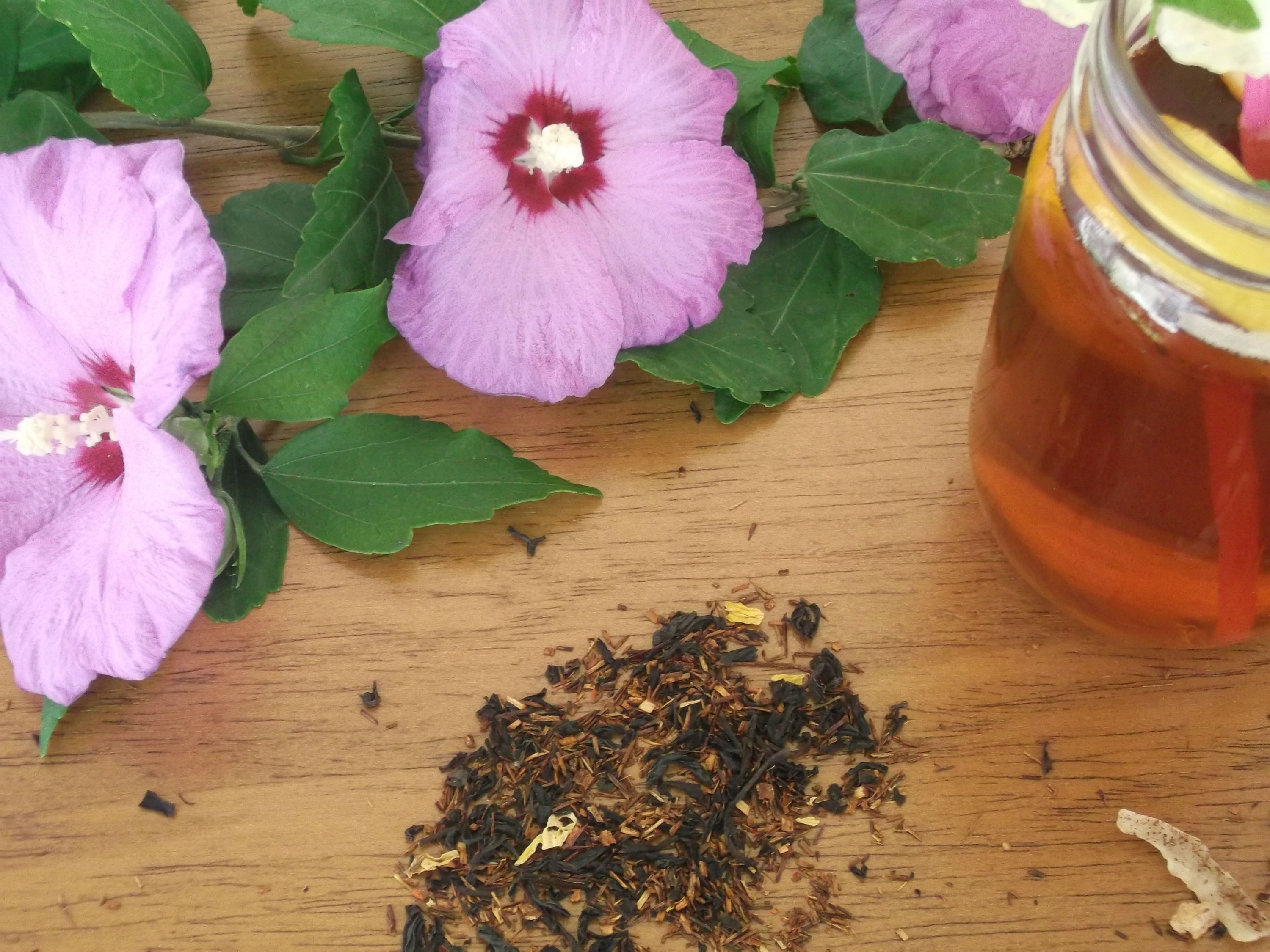The bioactivity of Rooibos tea

The bioactivity of Rooibos tea
The rooibos, or Aspalathus linearis, according to the scientific name, is an indigenous shrub only to the Cedarberg Mountains in the Western Cape region of South Africa. Today, its cultivation is widespread for commercial use as herbal tea (tisane or herbal tea) and its popularity is growing worldwide. It is a popular drink in his native country and its preparation as an infusion has been known for centuries.
In addition to its long history for healing in traditional medicine, numerous studies today support significant benefits for health. As more and more consumers are consciously seeking out foods rich in antioxidants for their daily diet, herbal teas or tisanes are dynamically aligned with their preferences. Either because they think they will help them more for a healthy lifestyle or because they think they feel better and stay healthy. According to a source (Sage Group, 2004), the total consumption of herbal teas or tisanes is increasing at an annual rate of 15-20% and most adults are now trying to consume foods with high levels of antioxidants including tisanes.

Polyphenols found in many tisanes, as rooibos, and especially flavonoids, have been found to have potent antioxidant, antimicrobial, anti-inflammatory activity as well as anti-tumor and anti-mutagenic properties. Photochemical compounds and micro/macro nutrients are directly associated with a lower risk of chronic diseases such as cardiovascular disease and several forms of cancer, although more research needs to be conducted.
There is an extensive literature suggesting health benefits associated with rooibos. The bioactivity of rooibos tea according to a review by Mc Kay and Blumberg (2006) published in Wiley InterScience Magazine aggregates and categorizes the advantages of this delicious tisane (rooibos).
One cup of brewed rooibos tea (1tsp/1 cup) contains 300 mg protein with the amounts of Cu and Mn at 7.8% and 2.2%, respectively, while Ca, Fe, and K constitute less than 1% according to U.S. Daily Value. Vitamin C is present at <= 15.7% mg / 100 mg dried tea according to Morton (1983), while 122 - 155 µmol / L infused tea based on measurements by Hesseling et al (1979) although in more recent analysis the values vary enough. Currently rooibos is the only known natural source of aspalathin, as well as other polyphenolic compounds that are present such as quercetin and amino acids.
Antioxidant properties: In vitro study, Joubert et al (2004) evaluated flavonoids from rooibos for their capacity to scavenge DPPH (diphenyl-2-picrylhydrazyl) and O2- radicals. In both assays, quercetin and aspalathin showed the most potent antioxidant activity with the latter being equally effective in both assays. During oxidation, aspalathin is converted to isoorientin which has a similar action towards DPPH.
Immune System: The rooibos response showed specific antibody production in murine splenocytes markedly stimulated by 1 - 100 µg / ml tea. In cells that have already been antigen-stimulated and have already shown mild reactions (primed splenocytes), treated with rooibos tea extracts, the production of interleukin was found to increase. The production of interleukin plays an important role in the body\'s responses to infections and injuries.
Chemopreventive potential: In vitro study by Edenharder et al (2002), the protective effects of rooibos against genotoxicity induced by 2-acetylaminofluorene (AAF) and 2-amino-1-methyl-6-phenyldimip in Chinese hamster lung fibroblasts genetically modified to express cytochrome P450, which plays an important role in the intensity and duration of drug activity. Rooibos tea solution significantly inhibited AAF toxicity (IC50 0.68% V / V), while PhIP toxicity decreased in a dose-dependent manner (IC50 1.29%). Quercetin (1mM), in particular, showed quite potent action as it significantly inhibited the effects of PhIP (IC50 1.50µM).
Gastrointestinal properties: Rooibos tea extracts containing quercetin 5 µg / ml showed a reduction in induced contractions of acetylcholine by about 50% for inhibition of histamine in piglet\'s ileum.
Carcinogenesis: Research in animals (mouse skin) by Marnewick et al (2005) showed that topical application of rooibos tea extract significantly reduced the mean number of tumors / mouse. Fewer mice (60%) were noted to have tumor compared to the control group (mice without rooibos application). Using 7, 12 dimethylbenz [a] anthracene (DMBA) as a tumor initiator and 12-O-tetra-decanoyl fluorol-13-acetate (TPA) as the cancer promoter topical for the carcinogenicity, the effect of tea extracts was monitored. Tests were repeated twice a week for 20 weeks. The effect of rooibos extracts was monitored from the first week of application.
Iron bioavailability: A study of 30 healthy young men aged 21 - 24 years was conducted to determine the absorption of iron by rooibos tea by Hesseling et al (1979). The results showed that rooibos tea did not affect the absorption of iron and did not differ significantly from water. All subjects were administered 1μCi of radiolabeled 59Fe plus 16 mg of elemental iron either with or without rooibos. The mean iron absorption measured two weeks later at 7.25% for the rooibos tea group and 9.34% for the water group. Other studies followed with the same conclusions.
Toxicity: Marnewick et al (2003) examined a variety of indices for safety and toxicity of rooibos tea by giving rooibos rats 2g / 100ml of water for 10 consecutive weeks. No adverse effects were observed on body weight, liver weight, kidney as well as total cholesterol and iron status.

In conclusion, researchers conclude that consuming herbal teas or otherwise tisanes is a smart and fast way to increase the daily intake of phytochemicals compounds in our daily diet - elements that promote good health.
